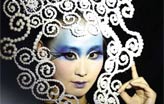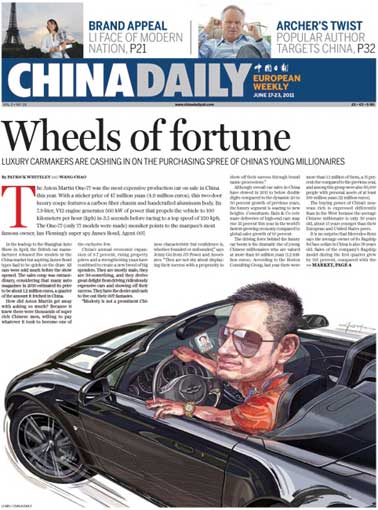View
Moving beyond the basics of Chinese into deep waters
Updated: 2011-06-23 07:50
By Arman Zand (China Daily)

Learning to speak Mandarin as a foreigner in Shanghai can lead to awkward, but funny, moments. While most locals are forgiving and give credit for your effort, mistakes in professional situations, even small mispronunciations, can be fatal.
Last year I was moderating a high-tech venture capital panel in Beijing. One of the speaker's surnames was Ye, which is quite common in China and should be pronounced in the fourth tone. His name was to be followed by Zong, which means head or chief.
While on stage, I mixed up the tones and repeatedly addressed him as "Ye Zong," in the third tone. In short, I was calling him "Chief Love Child" the entire time. Fortunately, he was a good sport about the mix-up.
My colleagues were not so forgiving. When I learned that I had passed the HSK (Chinese Language Proficiency) Level 3 exam, I joyfully announced to the entire office that I was now officially a Level 3 HSK student. I stood in front my office and proudly yelled out: "Wo shi san ji ren!"
After a brief, uncomfortable silence, all the employees burst into laughter. I had said, "I am an X-rated adult movie star!" My co-workers have yet to let me forget that mistake.
Mixing up tones wasn't my only flaw. Add cultural differences and you have the perfect recipe for laughs. Once I was playing foosball with office mates and every time any of them won a match, they would modestly declare, "Yunqi, yunqi." I assumed, correctly, that was the polite way of displaying modesty but I didn't bother to understand what it meant.

A few days later in a business meeting, in response to my client's praise of my Chinese, I replied: "Yunqi, yunqi." When they all started laughing at me, I knew something was wrong. I later found out that yunqi means luck. In short, I told him I speak Chinese only because of good luck.
My good luck didn't extend to understanding Chinese either. I often nod my head to indicate I understand what I'm hearing, but in fact, I have it all wrong. Once I hosted an American colleague to a team dinner and as host, I took responsibility for being his translator. The conversation turned to the whereabouts of one of our Chinese colleagues and someone said, "Ta tai wan le." I quickly translated with confidence, "they said he is in Taiwan." I was caught red-faced when our tardy Chinese colleague showed up to dinner a few minutes later. "Ta tai wan le" means "he is really late" and has nothing to do with Taiwan.
Aside from these small disasters, I really enjoy the challenge of learning Chinese. It's like a puzzle that can only be solved with 30,000 tiny pieces (Chinese characters). Even after you learn the basics, you realize that vocabulary is only the beginning. Appreciating how to read between the strokes reveals the real mystery.
To solve this mystery, I study Chinese with a private tutor for two hours a day, six days a week.
"Don't you work?" or, "How do you find the time?" are common questions when people realize how dedicated I am to Chinese. Actually, I do work full-time and learning Chinese is an important part of my job. In China, I represent Silicon Valley Bank and we work with high-tech companies. Many local clients don't speak English and while live translation can help get the point across, it is impossible to express myself through a third person. I even have a dedicated Sina Weibo microblog to communicate with our clients and those in our industry.
So, to be successful in China, it is essential for me to be able to communicate in proper local Mandarin. Mr Chief Love Child would definitely agree.
For China Daily
E-paper

Pret-a-design
China is taking bigger strides to become a force in fashion.
Preview of the coming issue
Franchise heating up
Party place
Specials

My China story
Foreign readers are invited to share your China stories.

Mom’s the word
Italian expat struggles with learning English and experiences the joys of motherhood again.

Lenovo's challenge
Computer maker takes on iconic brand apple with range of stylish, popular products
